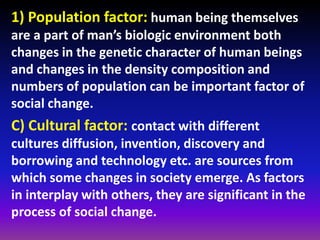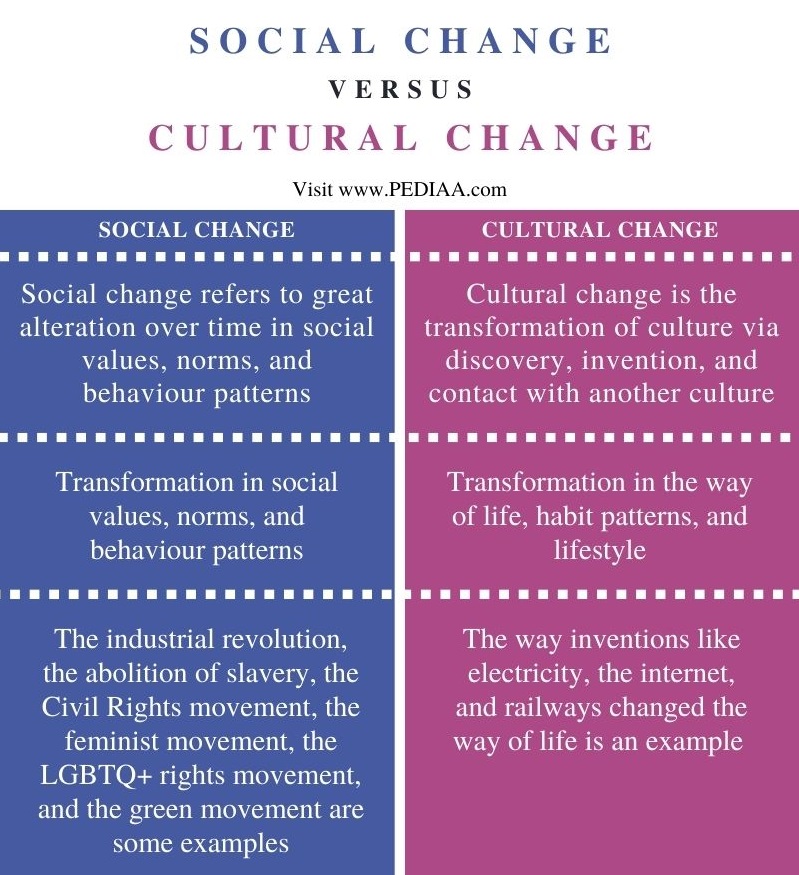Change is a constant aspect of society and can occur at various levels, from individual to global. There are many different sources of change in society, and some of the most significant ones include technological advances, cultural shifts, economic changes, and political movements.
Technological advances are one of the most influential sources of change in society. These advances can have a wide-ranging impact on various aspects of life, including communication, transportation, and the way we work. For example, the widespread adoption of the internet and mobile devices has transformed the way we communicate, access information, and do business. Similarly, advances in transportation, such as the development of electric and self-driving vehicles, have the potential to revolutionize the way we travel and the structure of our cities.
Cultural shifts are another important source of change in society. Culture refers to the shared values, beliefs, customs, behaviors, and artifacts that characterize a group or society. Cultural shifts can be driven by a variety of factors, including changes in demographics, social norms, and values. For example, the rise of social media and the increasing importance of online identity have led to shifts in the way we present ourselves and interact with others. Similarly, changes in social norms, such as attitudes towards gender roles and LGBTQ+ rights, can have significant implications for the way society functions.
Economic changes are also a significant source of change in society. Economic systems, such as capitalism and socialism, have a profound impact on the distribution of resources and the way societies function. Economic changes can be driven by various factors, including shifts in global markets, changes in government policies, and technological advances. For example, the globalization of trade and the rise of emerging markets have led to significant changes in the world economy, with both positive and negative consequences for different groups within society.
Political movements and changes in governance structures are also important sources of change in society. Political systems, such as democracy and autocracy, shape the way societies are organized and governed. Political movements, such as revolutions and social movements, can lead to significant changes in the way societies are structured and governed. For example, the Arab Spring, a series of protests and uprisings that took place across the Middle East and North Africa in the 2010s, led to significant political changes in several countries.
In conclusion, there are many different sources of change in society, including technological advances, cultural shifts, economic changes, and political movements. These changes can have significant implications for the way societies function and can lead to both positive and negative consequences for different groups within society.








